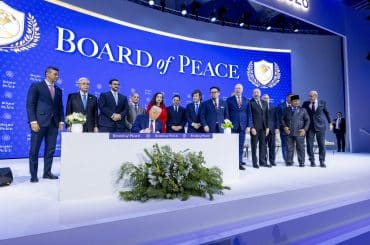As many of you know, Carol Chomsky, a linguist and social activist, died nearly two years ago. She had been married for nearly 60 years to Noam Chomsky, whom she met when she was 3 and he was 5 and their parents got together near Philadelphia.
Well, here is a way to honor Carol Chomsky and her husband: give money this holiday season to the Chomsky Fund. The Fund was announced yesterday on the anniversary of Partition as a gesture of solidarity with the Palestinian people. Its “initial launch” will end on the anniversary of the Universal Declaration of Human Rights, in two weeks, and in the midst of that fundraising period, Noam Chomsky will celebrate his 82d birthday.
From the announcement:
Notice of initial Public Launch:
November 29th, 2010 (anniversary of the 1947 Partition Plan and a day of Solidarity with the Palestinian People) to December 10th, 2010 (anniversary of the signing of the Universal Declaration of Human Rights) War Tax Resistance:
The Carol Chomsky Memorial Fund, Inc. welcomes your donations this holiday season. By donating to the Carol Chomsky Memorial Fund, you can save lives, increase hope and provide the means for Palestinians to work for a better future.The Carol Chomsky Memorial Fund exists to provide humanitarian aid to Palestinian refugees in the Gaza Strip and in the Palestinian refugee camps of Lebanon.
Partnerships with individuals and aid agencies on the ground in Lebanon, Gaza, in Europe and the United States will assure that your tax-deductible contributions get to the people for whom they are directly intended. You can make a difference….
People contributing to this fund may request that their donations are earmarked for Gaza or Lebanon. Funds for Lebanon will initially serve to support educational programs in the refugee camps for students seeking admission to universities. Other projects will be available soon. Funds for Gaza will serve a wide variety of purposes, humanitarian, educational, medical, psycho-social and more. You may request that your contribution be directed to a specific group of people (children, women, workers, the elderly, for example) or that they are directed to specific types of programs such as those mentioned above.
GAZA: War, siege and sanctions in the Gaza Strip mean that children suffer from food insecurity and are often malnourished. Some suffer from stunted growth. Many others, perhaps a majority, suffer from some level of post-traumatic stress disorder. Others need costly rehabilitation because of war wounds. An electricity crisis continues to plague the people of Gaza daily exacerbating the difficulty of obtaining clean drinking water and services most of us take for granted. The Gaza Strip lives an environmental nightmare. Cut off from the outside world, Gaza’s internal deterioration has affected its physical, social and economic infrastructure pushing Gaza and its 1.5 million people backwards to where they are forced to survive and subsist in ways that hearken back to an earlier century: donkey carts pull wagon-loads of goods to market; a once thriving fishing industry has been ruined by the occupation as fishermen are forced to stay closer inshore where fish are smaller and contaminated from raw sewage pouring into the Mediterranean sea. Businesses are failing, schools are overcrowded and lack sufficient supplies and adequate facilities at all levels. Hospitals and clinics barely function with inadequate medical equipment and supplies. Businesses are failing even as farmers are forced off their once arable lands, lands that now comprise the latest “buffer zone” — a no man’s land patrolled and guarded by Israel 3 kilometers into the Gaza Strip along the entire landed border of the territory. Israeli gunboats patrol the border by sea. Inside the Gaza Strip human rights and solidarity groups work overtime in an effort to help a society purposefully wrecked and impoverished maintain a collective sense dignity.
LEBANON: In the Palestinian refugee camps of Lebanon, close to 300,000 people live abandoned even by the society that acts as their host. As war and economic hardship hit the Gaza Strip and the West Bank more severely than in nearly 6 decades, the Palestinian refugees of Lebanon remain confined to a state of psycho-social and political limbo by their status as voiceless, stateless people lacking the most fundamental rights. In the squalid, still war-ruined refugee camps across the country and unwelcome by many outside the boundaries of their condemned homes, these non-people live ostracized or disqualified from receiving the most basic services provided by the state and even some aid agencies. The Palestinians of Lebanon, prevented from returning to their homes in historic Palestine, are banned from working in over 70 professions inside the country. Without the requisite, nearly unobtainable travel documents, they often cannot leave to seek better lives elsewhere, and if they were to obtain them where would they go? No less are they prohibited by law from repairing the crumbling camps to which they have been condemned like common criminals since the Nakba or Catastrophe of 1947-48. These refugees are the forgotten people of the Middle East. The struggle to maintain a viable, dignified present is offset by the future-less void in front of so many of them. Education, the chance to develop one’s individual and creative potential is one of the few avenues open to these non-people — especially if we can improve their chances of success.

